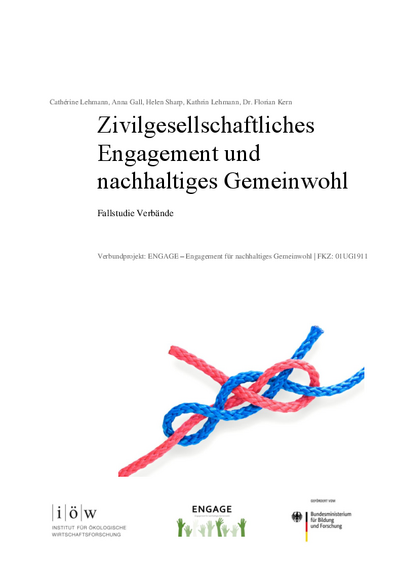Civil society engagement and sustainable public welfare – case study associations
The ENGAGE project investigates the conditions under which citizen participation and civic engagement contribute to sustainable common welfare. This is defined as the common good of current and future generations, for whom it is important to secure the ecological, social and economic foundations. This case study focuses on engagement in civic associations. Although only a few people still spend their most time-intensive voluntary activities working in associations, associations are still strongly anchored in society and have very high membership figures. Moreover, many associations bring together different population groups, although older people and men are more likely than others to be engaged. The case study therefore examines the conditions under which citizens’ involvement in associations can contribute to sustainable public welfare and which factors can have an inhibiting or promoting effect. Based on document analyses, interviews and a workshop, these conditions and factors were analyzed and it was determined which approaches could be used to identify further potentials. Case studies were conducted on Arbeiterwohlfahrt (AWO) and Bund für Umwelt und Naturschutz Deutschland (BUND). The results show that such supra-regional, membership-based welfare and environmental associations often face similar challenges despite their differences in the area of engagement.



